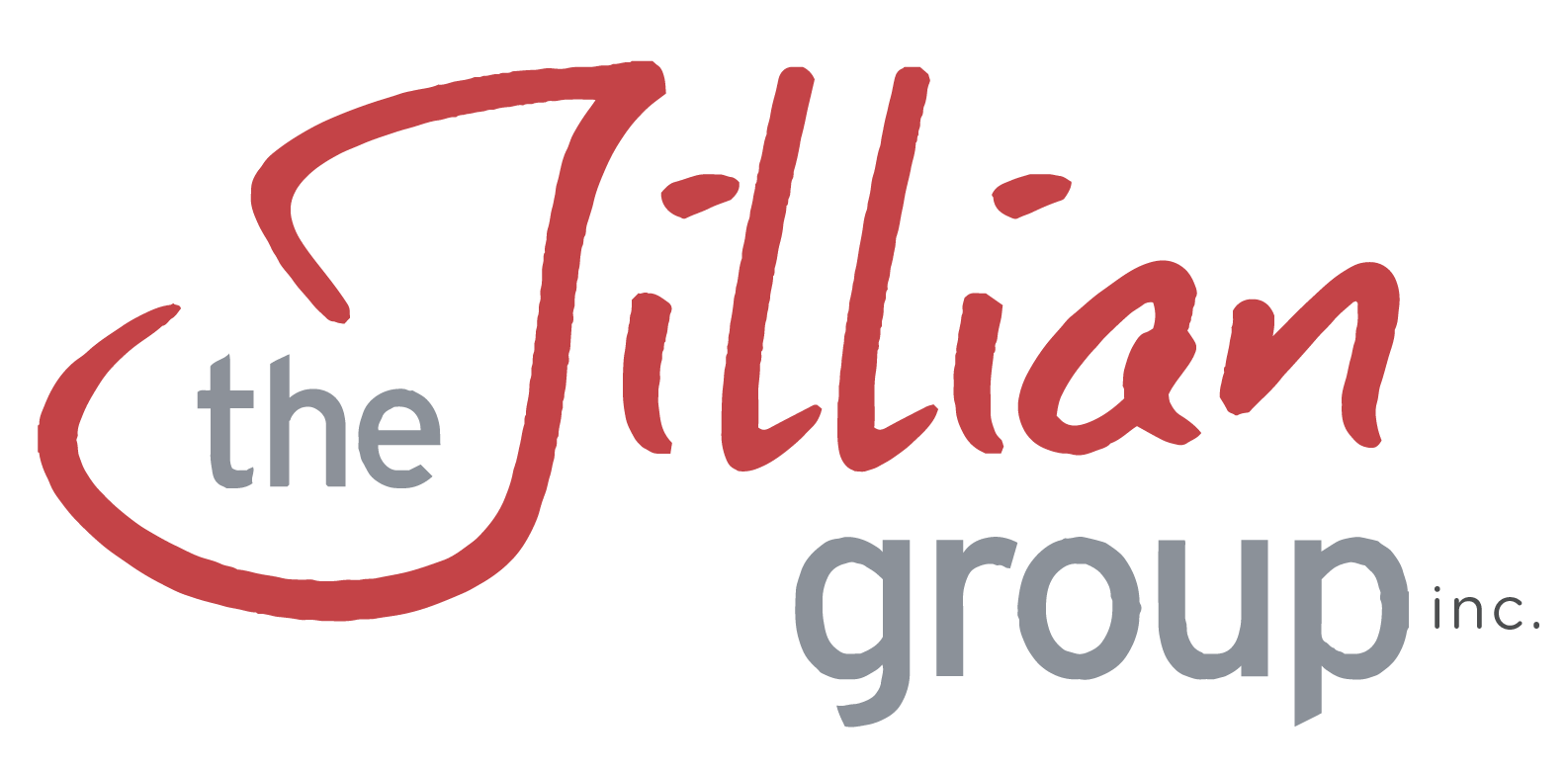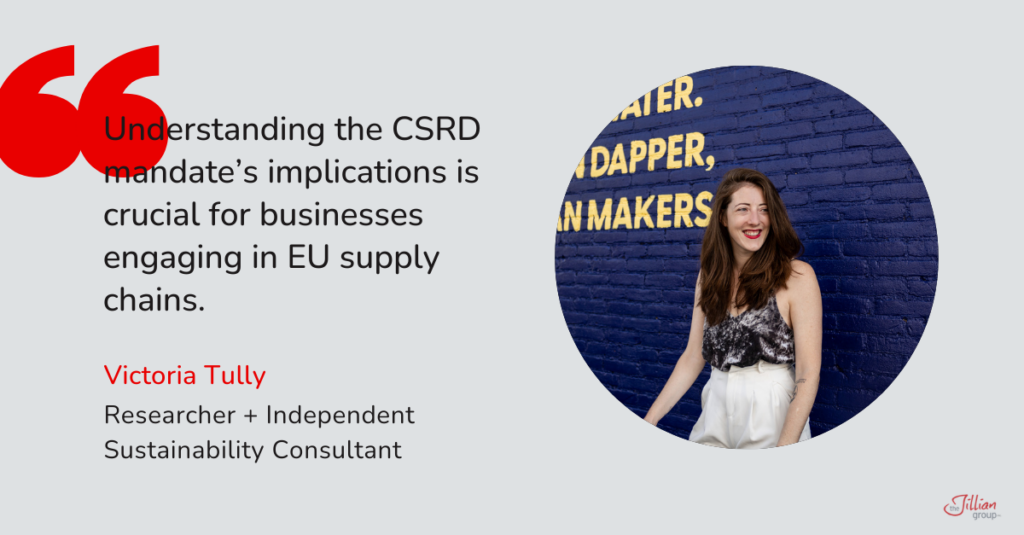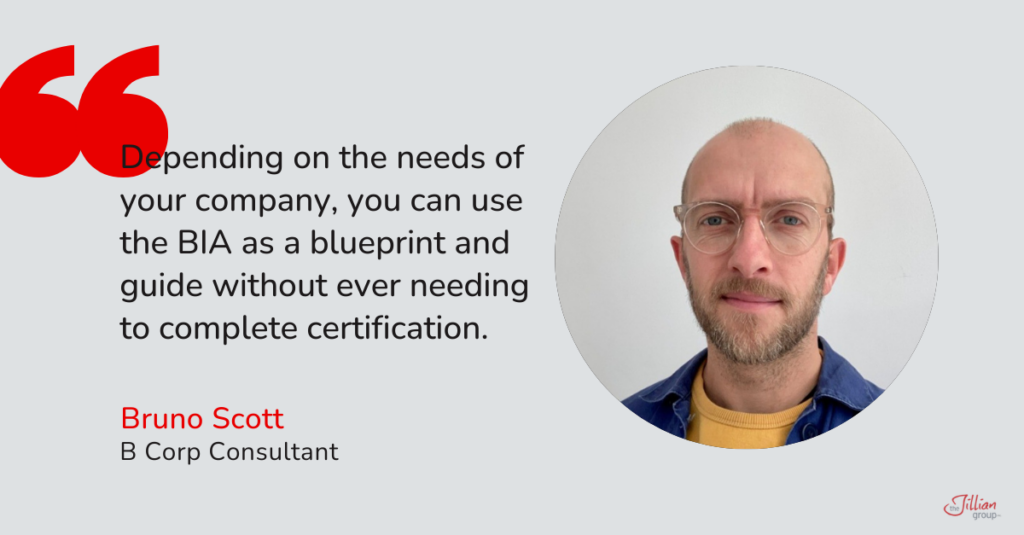The European Commission estimates that roughly 50,000 companies will be affected by the upcoming CSRD requirements. Smaller companies will need to be aware of potential trickle-down effects, too, even if they’re not required to report.
According to Victoria Tully, “While not all companies need to report on CSRD, they still need to be aware and compliant. Companies required to report will also put pressure on their suppliers (who are usually the smaller companies) for key KPIs.”
In other words, all companies doing business with businesses in the EU should have a basic understanding of the standards they may be asked to comply with themselves.
Will B Corp Certification Meet CSRD Requirements?
So, will having a B Corp certification help your company meet CSRD requirements? Not completely.
Overall, there are similarities between the two, but B Corp certification is a completely different framework. Because it has a slightly different focus from the CSRD requirements, it doesn’t qualify.
At the end of the day, though, CSRD, ESG, and B Corp have overlapping requirements. CSRD is, essentially, forcing companies to prioritize sustainability and get compliant. As B Corp rolls out updated standards in 2024, it will be interesting to see whether the two align more closely.
ESG vs. B Corp
The ESG reporting vs B Corp certification comparison is a complex one. Each option has its distinct focus, benefits, and requirements.
In a nutshell, ESG reporting is crucial for complying with emerging regulations and appealing to investors who are focused on sustainability.
On the other hand, companies that pursue B Corp certification aim to demonstrate a broader commitment to societal and environmental goals. B Corp status appeals to an expanding group of conscious consumers, talent and members of the workforce, and investors alike.
An additional value-add: Multinational corporations are increasingly working exclusively with sustainable suppliers, which adds extra value to the B Corp certification. More data is becoming available to show B Corp’s impact on bottom-line financial performance, too.
However, there is an overlap between ESG reporting and B Corp certification. Let’s take a closer look.
ESG Reporting
Over the years, ESG reporting has become increasingly vital due to regulatory changes and investor demands. Its focus is primarily on a company’s practices in the areas of environmental, social, and governance (in other words, ESG). ESG reporting has become integral to regulatory filings and annual reports for thousands of companies.
However, ESG metrics have evolved. They aim to standardize sustainability performance standards around the world. The World Economic Forum (WEF), supported by organizations like Deloitte, has been instrumental in identifying the critical ESG themes and metrics for enterprise value creation.
In the European context, the CSRD outlines specific standards for ESG reporting. The European Sustainability Reporting Standards (ESRS) include detailed requirements for disclosures on various factors like the circular economy, workforce conditions, and business conduct. It’s part of a broader movement towards increased sustainability transparency.
The ESRS has created a set of data points to assist in further understanding these requirements. You can view that here.
B Corp Certification
Companies with B Corp certification use the B Impact Assessment tool (BIA) to measure their impact holistically in the following areas: the environment, governance, workers, customers, and the community.
Businesses that are B Corp certified also place equity, inclusivity, and a regenerative economy as top priorities. These companies must continue to meet high standards of performance and transparency after they earn their certification.
Guided by B Global Network’s Theory of Change, B Lab is dedicated to inspiring companies to move toward a stakeholder-driven economy. Rather than focusing primarily on shareholders, B Lab is driving a broader, more holistic focus on stakeholder outcomes.
This high level of accountability has helped B Corp-certified companies gain greater stakeholder and consumer confidence.
Like ESG, the B Corp certification is also evolving. B Lab’s Standards Advisory Council continually works to update standards that address both emerging issues and stakeholder concerns. They conduct ongoing reviews of performance requirements to ensure they reflect current best practices in sustainable and responsible business.
Read more about the B Corp certification here.
Here’s a visual breakdown of how ESG overlaps with the B Corp framework.












